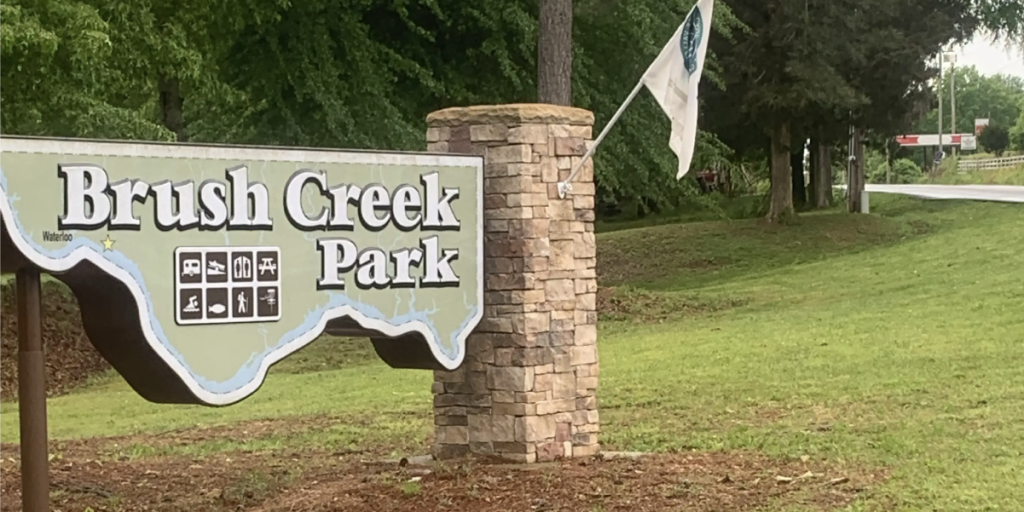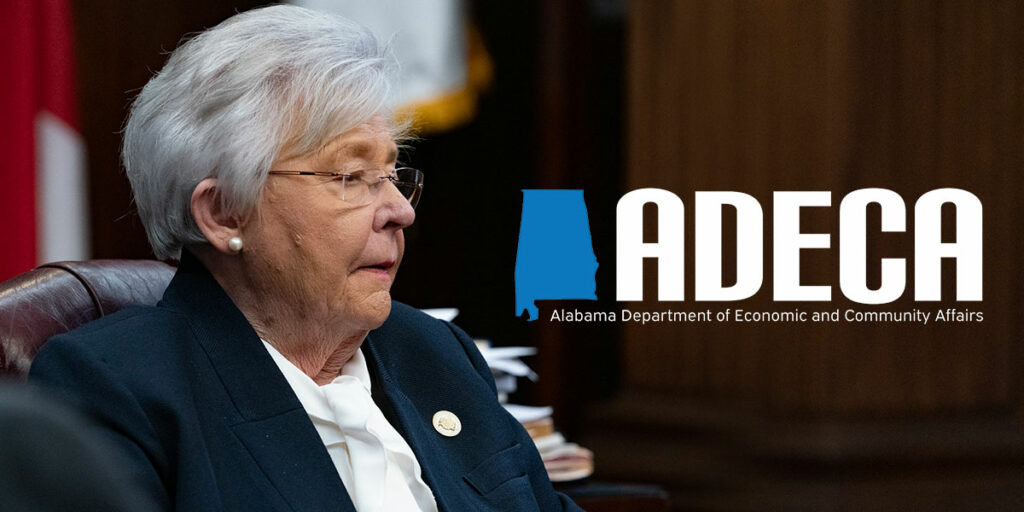The Alabama Digital Expansion Authority (ADEA) on Thursday held a public meeting during which leaders discussed strategies to bring essential broadband services to all corners of the Yellowhammer State.
The Connect Alabama Act, which was signed into law earlier this year, established the ADEA to oversee the state’s efforts to expand access to high-speed internet. The ADEA is chaired by State Senate Majority Leader Clay Scofield (R-Guntersville), who has been instrumental in the attempt to modernize Alabama’s broadband infrastructure.
The law also established the Alabama Digital Expansion Division, which is housed under the Alabama Department of Community Affairs (ADECA). The division is charged with the administration of the broadband accessibility grant program.
During the meeting, the ADEA received feedback from nationally respected consulting services firm CTC Consulting, LLC, which the authority tapped to provide crucial data to assist in the formulation of an in-depth 10-year plan to expand broadband connectivity. CTC specializes in investment policy review and development.
The firm noted that states across the nation are attempting to replicate Alabama’s efforts in the realm of broadband expansion. Specifically mentioned was the state’s broadband grant program, which has served to benefit areas across the state due to efficient planning and grant awarding.
Scofield asserted that Alabama’s existing grant program was a model that other states are attempting to duplicate.
“Our current broadband grant program, we are doing very well with that,” the ADEA chairman told Yellowhammer News. “As a matter of fact, other states have copied what we are doing, which is really good for us because we don’t have to reinvent the wheel so to speak. We have a grant system that is working very well.”
An additional area in which states are attempting to model their efforts after what is being achieved in Alabama is the state’s broadband connectivity voucher program. The program’s necessity was on full display during the height of the COVID-19 pandemic as students utilized remote learning. Households without a form of internet access were able to receive connectivity through the state-issued voucher program.
CTC presented leaders with a comprehensive map which detailed previously unavailable data regarding the levels of broadband coverage throughout the state. According to the Alabama Broadband Map, 18.8% of addresses don’t have access to 100/20 upload/download speed.
Additionally, the map found that 74.99% of the state did not have access to the highest speeds of internet service. This percentage quantified amounted to over 1.2 million unserved addresses. Leaders advised that a plan would set the goal of achieving the highest levels of internet speed for the citizenry.
CTC estimated that to reach such level of coverage, the cost to deploy high-speed connectivity to the state’s unserved population would be in the range of $4 billion to $6 billion.
The firm identified existing funding sources available that could be utilized for the expansion’s undertaking. Alabama will hold at its disposal from the American Rescue Plan Act (ARPA) $191 million in funding, which is likely to be dispersed in 2022. Funding received through ARPA must be obligated by 2024 and dispersed by 2026.
The federally-enacted Infrastructure Investment and Jobs Act (IIJA) enabled the state to receive a minimum of $100 million in early 2022.
According to CTC’s projections, the state could receive additional funding based on its share of unserved residents. This will be determined by a map surveyed by the Federal Communications Commission (FCC).
The IIJA also paved the way for further funding to be allocated to the state by way of a State Digital Equity Planning Grant and a State Digital Equity Capacity Grant. There was no indication as to the amount which could be received, but any monies awarded could prove significant in leaders’ expansion plans.
The firm’s findings showed that increased access to high-speed internet could bring vast economic benefits to the state of Alabama. Among these were increased household earnings, quality of life improvement, enhanced public safety, employment gains and health care savings.
CTC also provided an analysis of potential economic benefits stemming from $1 billion to $2 billion worth of broadband infrastructure investment. This included the creation of 7,300 to 14,600 jobs, $443 million to $885 million in total earnings, and $1.6 billion to $3.1 billion in total sales.
A recommendation made by CTC, which could prove vital in plans to expand broadband services, consisted of a public-private partnership between the state and Internet Service Providers (ISPs).
Due to what CTC referred to as “burdensome” FCC mapping requirements, many smaller ISPs could become overwhelmed in their efforts to comply. The firm advised that in analyzing grant opportunities, ADECA could play a role in ensuring smaller ISPs are able to comply with federal guidelines.
Regarding broadband expansion planning at the local level, CTC recommended that ADECA expand its existing technical assistance program to pave the way for an enhanced partnership with local stakeholders to ensure awareness of available funding opportunities.
The firm also recommended that ADECA should “develop a multi-prong outreach campaign” to facilitate relationships between consumers and ISPs concerning the use of federal subsidy programs for low-income areas.
ADECA will soon launch an interactive webpage to assist consumers, ISPs and public officials which will feature the newly-developed Alabama Broadband Map.
The webpage will allow consumers to check broadband availability and report service issues, as well as enable ISPs to identify existing expansion opportunities. Additionally, public officials could utilize the map to analyze connectivity in their districts.
In a conversation with Yellowhammer News, Scofield outlined Alabama’s positioning relative to other states in its efforts to bring about transformational change to the citizenry’s access to high-speed internet.
“There’s been a considerable amount of time and effort put into developing the map. These other states that don’t have a map, they’re at a serious disadvantage,” proclaimed Scofield. “We’re way ahead of every other state. That’s very important because of those time constraints. I’m afraid a lot of the other states are going to have to take a shotgun approach at this – we’re going to be able to take a rifle approach to it. By doing that, we’re going to be able to really make sure that these dollars are maximized and we spend them wisely and have the biggest impact. That impact is getting people access to high-speed internet who currently have no access.”
Scofield spoke to the importance of the map which serves to provide unparalleled insight into the state’s broadband infrastructure needs. He referred to the Alabama Broadband map as being “a first-of-its-kind.”
He continued, “You can’t really begin to come up with a plan unless you know where you are, unless you can quantify and put a dollar figure to the problem and really be able to visualize and see where the gaps of coverage are and really have that updated real time.”
The senator went on to note that the timing of the map could not have come at a more opportune time due to the availability of the ARPA funds.
“We all of the sudden have all these hundreds of millions of dollars at the state’s disposal,” added Scofield. “And obviously I think it’s important that when you have one-time money, you spend that money very wisely and very deliberatively. You spend it in ways that have a return on investment and that will have a multiplier effect.”
Scofield, a leading voice for fiscal conservatism in the Alabama Senate, advised that it was incumbent upon state leadership to appropriate the funds in an efficient manner. The senator indicated that utilizing the funds to increase consumer access to modern broadband services was an extremely worthy cause.
“Don’t forget, all this money that the feds have passed, our grandkids and their grandkids will be paying for it for a long time,” he added. “So I think that we have a tremendous responsibility to make these dollars count and to create opportunities for the people of the state of Alabama. I think they deserve that. I think we owe it to them to be extremely good stewards of these dollars. I think that broadband is a way that we can do that.”
The ADEA will use CTC’s findings and recommendations to develop a comprehensive plan which will be presented to the Alabama Legislature during its upcoming regular legislative session in January.
Dylan Smith is a staff writer for Yellowhammer News. You can follow him on Twitter @DylanSmithAL













